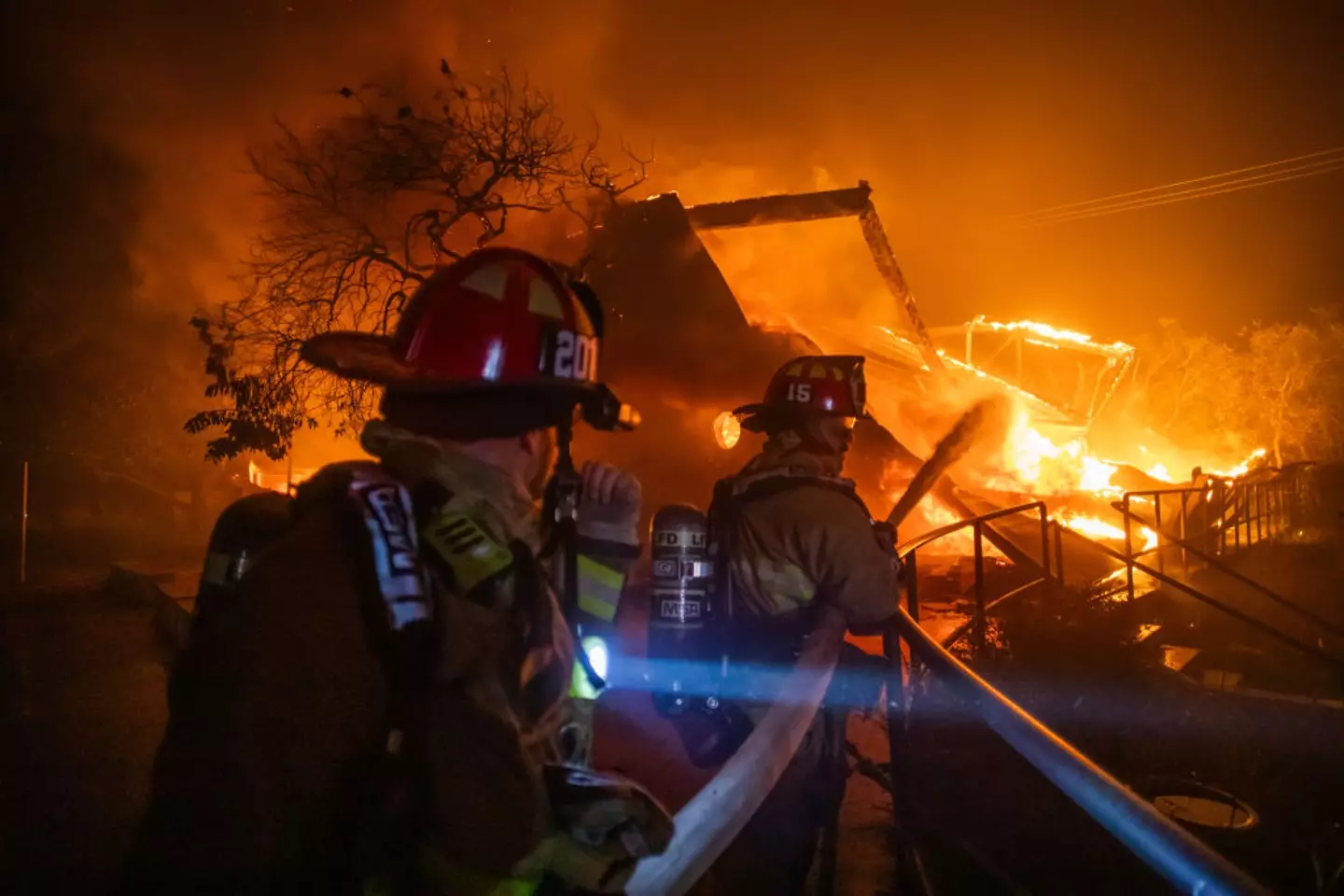There are a number of reasons why fresh water is preferable to salt water.
As Los Angeles faces the devastating impact of multiple wildfires, many people are questioning why ocean water—readily available along the coastline—isn’t being used to fight the flames. While it might seem like an obvious solution, there are valid reasons why firefighters prefer fresh water over salt water in these situations.
The Fires Devastating Los Angeles County
Among the raging wildfires, the Palisades Fire has earned the grim title of being the most destructive wildfire to ever hit Los Angeles County. It has scorched over 17,000 acres and, as of January 9, remains completely uncontained. Alongside this inferno, three other fires—the Hurst Fire, Eaton Fire, and Sunset Fire—continue to wreak havoc, leaving residents and officials scrambling for solutions.
Given the proximity of the Pacific Ocean, some people have taken to social media to ask why ocean water isn’t being used to douse the flames. “Is there any particular reason why we can’t use ocean water to help put out the fires?” one Twitter user questioned. Others have floated the idea of drawing water directly from the ocean, labeling it a potential ‘solution’ to the crisis.

The Challenges of Using Salt Water
While water is a natural adversary to fire, salt water poses unique challenges that make it less ideal for firefighting. One of the primary reasons, as highlighted by Technology.org, is the corrosive nature of salt. Ocean water, though effective at extinguishing flames in the short term, can cause significant damage to firefighting equipment, such as tanks, hoses, and pumps. This corrosion can render critical tools unusable in future emergencies, creating long-term problems for firefighting operations.

Another issue lies in the environmental impact. Salt can alter the soil composition, making it more difficult for plants to absorb water. This can leave already damaged landscapes barren for years, hindering the recovery of vegetation in affected areas. Even in regions with minimal greenery, the use of salt water introduces ecological complications that fresh water avoids.
Additionally, most existing firefighting infrastructure is designed to handle fresh water. From hydrants to engine tanks, these systems are not equipped to process salt water, making its use impractical and inefficient.
Salt Water’s Reduced Effectiveness
Beyond equipment damage and environmental concerns, salt water also has reduced cooling properties compared to fresh water. This means it is less effective at lowering the temperature of a fire, making it a less efficient firefighting tool.
However, this doesn’t mean ocean water is entirely out of the question. In extreme scenarios, it could be used as a last resort. But with fresh water being more effective and accessible through traditional systems, it remains the preferred choice.
Water Supply Challenges During the Fires
The debate over using salt water gained traction when some Los Angeles County fire hydrants began running dry during the firefighting efforts. Despite water storage tanks being filled before the blazes, the intense demand briefly outpaced supply. Jim Hudson, of the California Department of Forestry and Fire Protection, acknowledged the issue as a ‘challenge’ early on but assured that the water system has since stabilized.
How You Can Help
As firefighters work tirelessly to battle the flames, those looking to support affected communities can donate to the Red Cross. Contributions can be made online, by calling (800) 733-2767, or by texting REDCROSS to 90999.
While the idea of using ocean water might seem appealing at first glance, the practical challenges and potential downsides make it far from an ideal solution. For now, firefighters continue to rely on fresh water systems to combat these unprecedented wildfires and protect Los Angeles communities.

